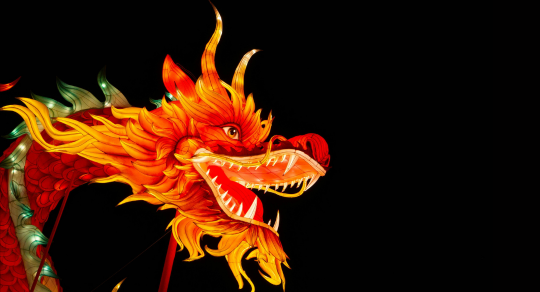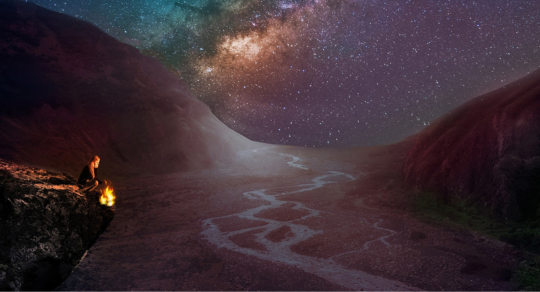When asked, I have heard many people in our modern culture describe themselves as being “spiritual.” What does that actually mean? In many cases, this expression has been adapted into a pop-culture trend which now simply refers to a “spiritual person” as something other than a “religious person.” The same phrase is also often used to classify a compartmentalized “spiritual” activity, behavior, belief system or attitude with some level of benefit and/or awareness such as yoga, meditation, holistic thinking or social consciousness. But beyond the trendiness of this phrase and its socially accepted reference, what is the true meaning of the word “spiritual” and how does knowing this empower your journey?
Unfortunately, the essence of a truth, which was once poignant and powerful, can often be lost in the incessant machine of our information-crazed culture that can be guilty of pumping out a rapid-fire, diluted but catchy repertoire at the expense of depth. Age-old teachings have been converted into consumable catch phrases, rhetoric and one-liners. Therefore, it is important to re-examine the true essence of being spiritual.
The word “spiritual” is derived from a 13th century Latin term spiritus which literally means “of spirit”: relating to, of, or affecting the human spirit, incorporeal, intangible, transcendental, ethereal…
Consider these points in re-evaluating your idea of being spiritual:
1. The existence of a non-physical reality is an accepted scientific fact. It is important to understand that modern science and various esoteric systems of medicine from different cultures around the globe have proven beyond doubt that everything in our physical world has a non-physical, or root “of spirit,” that can be tangibly measured, recorded and observed at some level. Each system has its own way of cataloguing this “of spirit” aspect of everything. Physicists and scientists call it energy, and different sacred systems reference this intangible experience with terms like consciousness, life force, chi or prana. But they are all talking about the same thing.
2. Absolutely EVERYTHING is spiritual. Since everything in our experience on some level has been proven to be comprised “of spirit,” then everything in essence has to be, by definition, “spiritual” by nature. Every single creature, individual, behavior, choice, action, creation, activity and circumstance, regardless of your personal opinion or judgment is indeed spiritual. In fact, there is nothing in our experience that we can accurately describe as truly “not being spiritual.”
3. Something cannot be more spiritual than something else. Is a soldier, politician or corporate CEO more or less spiritual than a priest, yoga teacher or healer? Consider how many judge the varying and often colorful aspects and experiences of life by classifying them as spiritual or not spiritual, which is another way of saying you approve or disapprove, or demonstrating a higher level of value to a specific behavior, activity or vocation as compared to another.
4. Your personal opinion does not change the inherent nature of anything. Remember that your opinion, judgment or classification (which you are free to have and explore) does not change the inherent nature of anything. The same incorporeal, intangible, transcendental experience flows through all things. Many of the native communities of North America often refer to “that which moves through all things” as being the essence of the Divine or the Great Spirit.
5. Re-examine your definition of a spiritual being. Therefore consider, when you refer to yourself as “spiritual,” you are simply stating an accepted fact and nothing more. Do yourself a favor and forget about classifying yourself, or anything else, as spiritual by habit or socially accepted trend. But instead re-examine your definition. What does it mean to you? It is far more important to know your authentic and personal relationship to that experience of spirit as you continue to deepen and realize its full potential. And as an inherently spiritual being, ask yourself a series of questions about your experience of being spiritual:
- Are you choosing to live your life paying attention to that intangible experience which is relating to or affecting the spirit within you and in everything?
- What is your actual relationship to that intangible, transcendental experience of spirit?
- How much awareness do you have of your own internal and external experience of spirit?
- Do you consciously make your decisions and chose your behavior based on your experience of spirit?
- Do you truly honor that experience of spirit in yourself and in everything around you?
- Are you making a conscious effort to deepen your relationship to spirit?
If you did choose to live more consciously connected to the notion of spirit, would your life choices and relationships look any different?
6. It is impossible to become “more spiritual.” There is often a misconception that the journey is about becoming “more spiritual,” but in truth it is about developing deeper awareness of your relationship to the already inherent nature of spirit in everything.
7. Focus on your conscious relationship to your spiritual nature. The key element to honoring yourself and living as an authentic spiritual being is choosing to have a conscious, connected, aware and ever-expanding relationship to your unique experience of spirit, however that looks for you. Let go of the conditioned, old and superficial judgments and classifications. Be open to explore possibilities. Remember that everything is inherently spiritual. Examine your relationship to that ever-changing divine experience.
That powerful exploration of your personal and direct experience of spirit is the essence of your unfolding journey. Embrace it.






